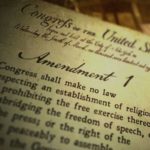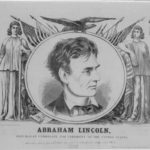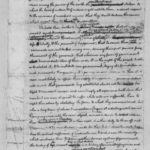“Life, Liberty & the Pursuit of Happiness” is free online U.S. history resource for high school students. This textbook is the first entirely free U.S. history resource that aligns with AP standards. It is based on compelling stories that bring American history to life.
Abraham Lincoln’s Fragment of the Constitution & the Union (1861): The Purpose of the Union
Voices of History
Voices of History is a collection of eight Bill of Rights Institute curriculum resources including Being An American, Preserving the Bill of Rights, Founders and the Constitution, Supreme Court DBQs, Liberty and Security in Modern Times, Religious Liberty: An American Experiment, and Heroes and Villains. Teachers will have free access to each resources’ lessons plans and handouts.
Declaration Revisited: Black Americans Podcast
This is the first of three revisits to the Declaration of Independence; three communities to which the tenets of life, liberty, and the pursuit of happiness did not apply. Byron Williams, author of The Radical Declaration, walks us through how enslaved Americans and Black Americans pushed against the document from the very beginning of our nation’s founding.
This short episode includes a one-page Graphic Organizer for students to take notes on while listening, as well as discussion questions on the back side.
The Purposes of Government
This lesson has students learn about the purposes of government specified in the preamble of the Constitution. Students will use C-SPAN video clips to define what is meant by “establish Justice, insure domestic Tranquility, provide for the common defense, promote the general Welfare, and secure the Blessings of Liberty.” As practice, students will apply their knowledge of these purposes by viewing real-life examples of government actions and identifying the relevant purpose of government. This lesson works well in classrooms with one-to-one devices and can be adapted to flipped classrooms.
Documents of Freedom: History, Government, and Economics Through Primary Sources

This complete online textbook covers American history, government, and economic concepts. Resources include readings for students, activity directions for teachers, and handouts that are downloadable and printable for classroom use. Content is geared toward students in grades 8-12. All materials are aligned with Common Core and individual state standards.
Habeas Corpus: The Guantanamo Cases
One of our oldest human rights, habeas corpus safeguards individual freedom by preventing unlawful or arbitrary imprisonment. This documentary examines habeas corpus and the separation of powers in the aftermath of the 9/11 attacks as the Supreme Court tried to strike a balance between the president’s duty to protect the nation and the constitutional protection of civil liberties in four major Guantanamo Bay cases: Hamdi v. Rumsfeld, Rasul v. Bush, Hamdan v. Rumsfeld and Boumediene v. Bush.
Closed captions available in English and Spanish.
Dialogue on the Fourteenth Amendment
The American Bar Association Dialogue program provides lawyers, judges and teachers with the resources they need to engage students and community members in a discussion of fundamental American legal principles and civic traditions. This Dialogue on the Fourteenth Amendment is composed of three parts:
Part 1: Equal Protection and Civil Rights – Participants discuss the equal protection clause of the 14th Amendment and consider how Congress, through federal legislation, has worked to help realize its constitutional promise.
Part 2: Incorporating the Bill of Rights examines the concept of incorporation. Using a case study of Gitlow v. New York, this section provides a guide to how courts have applied the Bill of Rights, selectively, to the states using the 14th Amendment.
Part 3: Ensuring Equality and Liberty explores how the 14th Amendment has been interpreted by courts to protect fundamental freedoms, including individuals’ right to marry.
What Does July 4th Mean to You?
Freedom of the Press: New York Times v. United States

This documentary examines the First Amendment’s protection of a free press as well as the historic origins of this right and the ramifications of the landmark ruling in New York Times v. United States in which the Supreme Court that prior restraint is unconstitutional. The federal government could not prevent newspapers from publishing the Pentagon Papers. A lesson plan, Defenders of Liberty: The People and the Press, accompanies the video.

